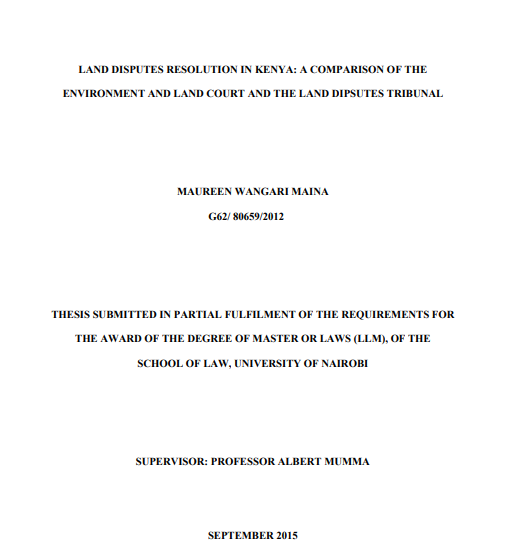Location
Our Vision is to be a world-class university committed to scholarly excellence.
Our Mission is to provide quality university education and training and to embody the aspirations of the Kenyan people and the global community through creation, preservation, integration, transmission and utilization of knowledge.
Core Values
In order to realize the above vision and mission, certain shared values shall be nurtured. There is great need for the University to be guided by the right values derived from the virtues and moral standards of the Kenyan and wider society.
Core Functions
Teaching and Learning: The university offers innovative , relevant and market driven academic programmes , both at undergraduate and postgraduate levels with inbuilt quality control systems the university also provides an environment and policy framework for undertaking high quality and relevant research
Members:
Resources
Displaying 61 - 65 of 298Women’s Experiences On Food Security In Kenya: Major Challenges That They Face
This paper discusses the major challenges women in Kenya face as they try to ensure and maintain food security at the household level. The challenges include access to and ownership of resources such as land, finance, water and affordable cooking energy; access to markets and proper infrastructure and
Effects of holistic grazing management on soil physico-chemical properties and herbaceous vegetation production in Naibunga Conservancy, Laikipia County, Kenya
This study evaluated the effects of holistic grazing management (HGM) on biomass production and soil properties under holistic and non-holistic grazing sites. The study was conducted in two Group Ranches namely, Koija and Il Motiok in Naibunga Conservancy, Laikipia County, Kenya. Vegetation attributes and soil parameters were determined in four plots randomly sited and established within the Il Motiok Ranch, which is under HGM, and in the same number of plots sited and established in Koija Ranch which is under free-range grazing system.
Piloting livestock identification and traceability systems in pastoral production systems in eastern Africa
PLACING THE KENYAN LAW ON BENEFIT-SHARING WITHIN ITS PROPER SOCIAL, ECONOMIC AND POLITICAL CONTEXT: THE CASE STUDY OF TURKANA OIL RESOURCES
Kenya is on the road towards commercial exploitation of the Turkana oil resources. Until now, management of benefits from Kenya‟s natural resources is particularly problematic. This assertion is demonstrated by the fact that such benefits have never trickled down to the local people in a very structured way. The failure has led to calls for the putting into place of ways through which natural resource-based benefits should be shared equitably. Picking a cue from the above experiences, Parliament recently published three relevant and interrelated Bills.
LAND DISPUTES RESOLUTION IN KENYA: A COMPARISON OF THE ENVIRONMENT AND LAND COURT AND THE LAND DIPSUTES TRIBUNAL
Until recently, the legal framework on land was marred by the existence of multiple land laws, some of which were incompatible. These laws, coupled with the rampant land injustices hampered efficacy in land ownership, management and administration of land. As a result, the Constitution of Kenya (CoK) has changed the laws on land and the dispute resolution institutions.






